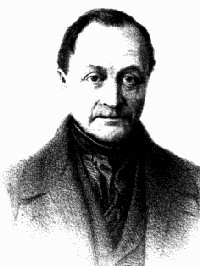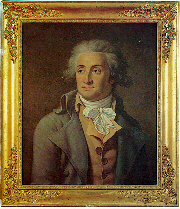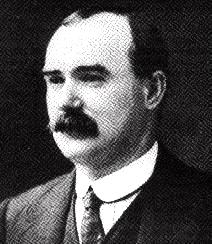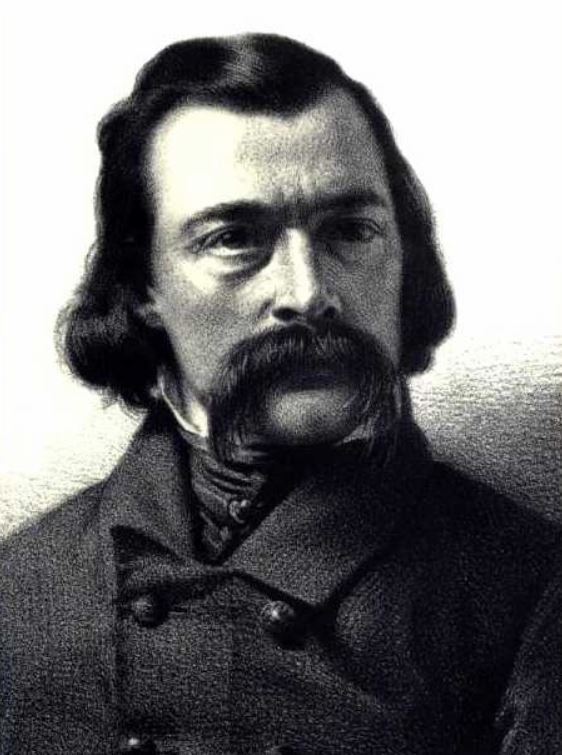Co
Cohn, Oskar (1869-1934)
Son of Jewish traders, lawyer, member of SPD, deputy in 1912. Supported the majority in 1914 and served at front as non-commissioned officer. Discharged in 1917, joined USPD, defended sailors and strikers before tribunals. In 1918 was legal adviser to Russian ambassador Joffe. In January 1919, acted as conciliator in January days. Later in right wing of USPD and went back to SPD (Sozialistische Partei Deutschlands, Social-Democratic Party) in 1922. In 1933 took refuge in Paris with the intention of emigrating to Palestine - but died shortly before he was to make the journey.
Comte, Auguste (1798 - 1857)
 Founder of positivism.
Founder of positivism.
Comte’s father, Louis Comte, a tax official, and his mother, Rosalie Boyer, were strongly royalist and Roman Catholic and at odds with the republicanism and scepticism that swept through France in the aftermath of the French Revolution. Comte rejected Roman Catholicism and royalism alike at an early age. He was intellectually precocious and in 1814 entered the prestigious École Polytechnique and soon took up permanent residence in Paris, earning a precarious living there by the occasional teaching of mathematics and by journalism. He read widely in philosophy and history and was especially interested in those thinkers who were beginning to discern and trace some order in the history of human society. Montesquieu, Condorcet, Turgot, and Joseph de Maistre were critically worked into his own system of thought.
Comte’s most important acquaintance in Paris was Henri de Saint-Simon, one of the founders of socialism and one of the first to see the importance of economic organisation in modern society. Comte’s ideas were very similar to Saint-Simon’s, and some of his earliest articles appeared in Saint-Simon’s publications. There were distinct differences in the two men’s viewpoints and scientific backgrounds, however, and Comte eventually broke with Saint-Simon. In 1826 Comte began a series of lectures on his "system of positive philosophy" for a private audience, but he soon suffered a serious nervous breakdown. He made an almost complete recovery from his symptoms the following year, and in 1828/29 he again took up his projected lecture series. This was so successfully concluded that he re-delivered it at the Royal Athenaeum. The following 12 years were devoted to his publication of his philosophy in Course of Positive Philosophy (1830-42).
During the remainder of his life he was supported in part by English admirers such as John Stuart Mill and disciples such as lexicographer Maximilien Littré. Comte married Caroline Massin in 1825, but the marriage was unhappy and they separated in 1842. In 1845 Comte had a profound romantic and emotional experience with Clotilde de Vaux, who died the following year of tuberculosis. Comte idealised this sentimental episode, which exerted a considerable influence on his later thought and writings, particularly with regard to the role of women in the positivist society he planned to establish.
Comte devoted the years after the death of Clotilde de Vaux to composing his other major work, the System of Positive Polity (1851-54), in which he completed his formulation of sociology. The entire work emphasised morality and moral progress as the central preoccupation of human knowledge and effort and gave an account of the polity, or political organisation, that this required. Comte lived to see his writings widely scrutinised throughout Europe. Many English intellectuals were influenced by him, and they translated and promulgated his work. His French devotees had also increased, and a large correspondence developed with positivist societies throughout the world. Comte died of cancer in 1857.
Comte was a rather sombre, ungrateful, self-centred, and egocentric personality, but his intellectual determination and humanitarian zeal attracted many followers.
Comte lived through the aftermath of the French Revolutionary and Napoleonic periods. Modern science and technology and the Industrial Revolution had begun transforming the societies of Europe in directions no one yet understood. Comte’s particular ability was as a synthesiser of the most diverse intellectual currents. From David Hume and Immanuel Kant he derived his conception of positivism, that positive knowledge is based on natural phenomena and their properties and relations as verified by the empirical sciences. From various French clericalist thinkers Comte took the notion of social organisation that would imitate the hierarchy and discipline of the Catholic church. From various Enlightenment philosophers he adopted the notion of historical progress. From Saint-Simon he drew the need for a basic and unifying "sociology" to explain existing social organisations and guide social planning for a better future.
Comte’s "law of the three stages" maintained that human intellectual development had moved historically from a theological stage, a transitional metaphysical stage, in which explanations were in terms of essences, final causes, and other abstractions; and finally to the modern positive stage, distinguished by an awareness of the limitations of human knowledge. Knowledge, he held, could only be relative to man’s nature as a species and to his social and historical situation. Absolute explanations were therefore better abandoned for the more sensible discovery of laws based on the observable relations between phenomena.
Comte classified the sciences according to an historical sequence from mathematics, astronomy, physics, and chemistry to biology and finally to sociology. According to Comte, sociology would reduce social facts to laws and synthesise the whole of human knowledge.
He held that the underlying principles of society are individual egoism, encouraged by the division of labour, and the combination of efforts and the maintenance of social cohesion by means of government and the state.
Comte rejected democracy, emphasising hierarchy and obedience, and he held that the ideal government would be made up of an intellectual elite. His ideas influenced, among others, Émile Durkheim and Herbert Spencer.
Condorcet, Marquis de Marie Jean (1743-1794)
 French Enlightenment mathematician, philosopher, economist and social theorist.
French Enlightenment mathematician, philosopher, economist and social theorist.
Born in Saint-Quentin and educated at Navarre, Condorcet arrived in Paris in 1762. In 1765, Condorcet published his first work on mathematics. In 1769, he was elected to the prestigious Académie française. From 1773, he was appointed secretary of the Académe, and formed close relations with Voltaire, Diderot and Jacques Turgot.
Condorcet sought to explain socio-economic phenomona by mathematical and statistical methods. Condorcet argued that the only social obligation is to obey the requirements of Reason, rather than the general Will, as proposed by Rousseau.
Condorcet was an optimist on social progress, believing in the ultimate “perfectability” of man. He is often credited as the first to formulate the idea of a welfare state, which redistributed wealth in order to eliminate poverty. Condorcet’s research programme was abandoned wholesale after the French Revolution – particularly after J.B. Say’s efforts to redirect French theory towards non-mathematical British political economy.
Condorcet was appointed by Turgot as master of the mint in 1774. He resigned in protest in 1776 over Turgot’s dismissal, but went on to serve until 1791. During this time, Condorcet wrote his famous theorem proving that majority voting could not produce consistent results in deciding between more than two alternatives.
Condorcet took a leading role in the 1789 French Revolution, which he saw as embodying a great hope for his “rationalist” reconstruction of society. However, he voted against the execution of the Louis XVI and opposed the arrest of the Girodins. As a result, Condorcet was denounced as a traitor by the Jacobins and went into hiding in 1791. It was during this period that he wrote his great humanitarian tract on the Progress of the Human Spirit (1795). Finally captured in 1794, he reportedly took his own life in prison, although the possibility that he was murdered cannot be ruled out.
Conradi, Emilie (1822-1888)
Karl Marx’s sister, married to Johann Conradi.
Conradi, Johann Jakob (1821-1892)
Engineer in Trier, husband of Karl Marx’s sister, Emilie.
Connolly, James (1868-1916)
 Joined Hyndman’s Social Democratic Federation in 1889, and founded the Irish Socialist Republican Party in 1896; a founder member of the De Leonist SLP in 1903. Toured the US until 1910, speaking in support of the IWW; returned to Ireland and became secretary of the Transport and General Workers Union. Shot in 1916 for his leading role in the Easter Rising.
Joined Hyndman’s Social Democratic Federation in 1889, and founded the Irish Socialist Republican Party in 1896; a founder member of the De Leonist SLP in 1903. Toured the US until 1910, speaking in support of the IWW; returned to Ireland and became secretary of the Transport and General Workers Union. Shot in 1916 for his leading role in the Easter Rising.
Further Reading: James Connolly Archive
Considerant, Victor Prosper (1808-1893)
 French utopian Socialist and disciple of Fourier.
French utopian Socialist and disciple of Fourier.
Victor Considerant was born in Salins (Jura) in 1808, and attended the same collège in Besançon as had Charles Fourier. During these years he learned of Fourierism from two followers: Just Muiron, a local government official, and Clarisse Vigoureux, a wealthy widow, his future mother-in-law. Considerant continued his education at the École Polytechnique in Paris, where he studied engineering. Here the ideas of Henri-Claude de Saint-Simon were in vogue, and Considerant became well acquainted with them. Like many of his fellow students, he joined the military engineering corps upon graduation in 1830. By then, he was already a Fourier publicist, and in 1836 he gave up his career to become Fourier’s full-time disciple and interpreter.
Considerant wrote the Democracy Manifesto, which was published a year before Marx and Engels’ Communist Manifesto. He was a member of the First International, and took part in the 1871 Paris Commune.
He died in Paris in 1893.
See Victor Considerant Archive and Victor Considerant Biography
Cook, Arthur J. (1885-1931)
Became General Secretary of the Miners Federation of Great Britain in 1924, and led the union during the General Strike of 19A strong left-winger, he was briefly a member of the Communist Party of Great Britain during the early 1920s. Leftist leader of the British union movement and the Anglo-Russian Committee.
Cooray, Lionel D.
Born Moratuwa, Ceylon. Joined Lanka Sama Samaja Party and went to Madras, 1942. Arrested in Madras, July 1943, and jailed in Ceylon, 1943-1945. Secretary, LSSP (Philip Gunawardena group), 1945-46. Co-editor, Samasamajist , 1945-50. Contested the Colombo North constituency for parliament, 1947 (unsuccessful). Left LSSP for VLLSP, 1953. Became private secretary for P.H. William Silva when he became Minister in MEP government, 1956.
Compiled by Charles Wesley Ervin
Copernicus, Nicolaus (1473 - 1543)
Polish astronomer, founder of the conception of the Universe in which the Sun is at the centre, and the Earth moves around the Sun. Although Copernicus left the stars in a fixed sphere around the Sun, his movement of the Earth from being the centre of the Universe, as it was in the system of Ptolemy, to being a mere satellite of the Sun, was revolutionary.
Copernicus’s theory not only reduced man’s position on Earth to being a part of Nature, without any special place at the centre, it also asserted that the Heavens were governed by the same laws as Earthly things. Copernicus was familiar with the writings of the ancient Atomists who had postulated "heliocentrism" against the Geocentrism of Aristotle, Plato and Ptolemy and adopted as dogma by the Church. The Church condemned Copernicus’s work and progressive thinkers of the time took them up and further developed them. Copernicus thus marks the beginning of materialism in this era. The leap made by Copernicus arose out of the accumulation of astronomical observations which required continual amendment of the Ptolemic model, introducing ever more "spheres" to account for observed trajectories. Copernicus proposed a model which provided a much more "plausible" explanation for the observations, if only one could lay aside the doctrine of Geocentrism.